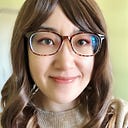Rethinking Public Education in the Age of AI
Comparative notes across cultures
Earlier when I was researching summer camps in Taiwan for my children’s immersion, relatives suggested a Waldorf school in Taitung they’d visited and been impressed by its founder. One morning after dropping off the kids at their Taipei day camp, I stumbled upon a collection of essays at the Taipei Public Library authored by none other than the founder of this school.
As I thumbed through the pages and pondered Stanley Yen’s educational philosophy, I remembered acquaintances in other parts of Asia whose little ones are also undergoing Waldorf training. This increasing Asian attention to Western alternative schooling fascinates me as I contemplate the future of work in an age of artificial intelligence, along with the skill-set my children would need to acquire, when even white-collar jobs, so long as the data they work with can be converted into standard unified blocks, must also face the prospect of automation and elimination.
Yen’s school aims to equip, through a holistic education, even its most disadvantaged indigenous students with the capacities for critical thinking, collaboration, communication, and creative innovation. His emphasis on social-emotional learning, coupled with an ecological sensitivity, serves well Taitung’s local conditions and its native…
